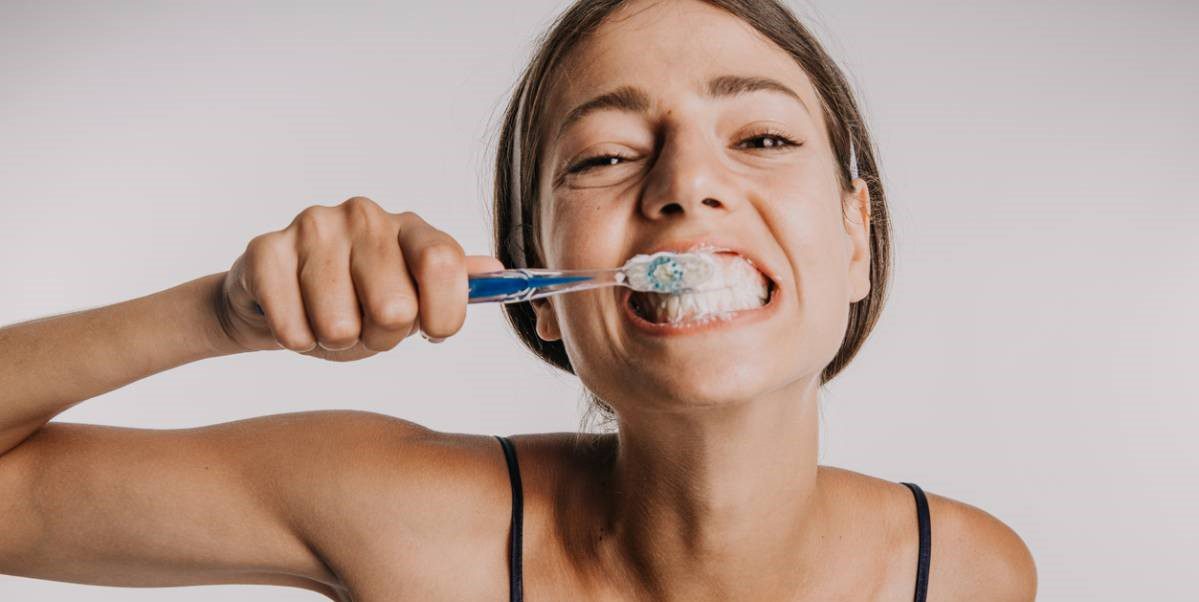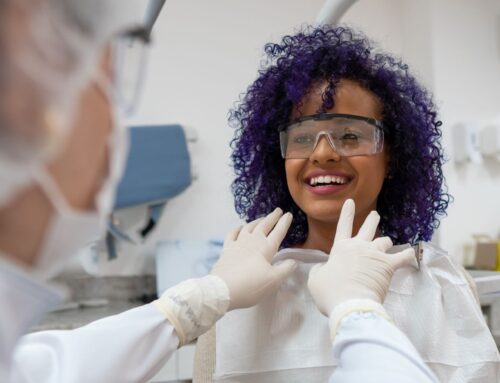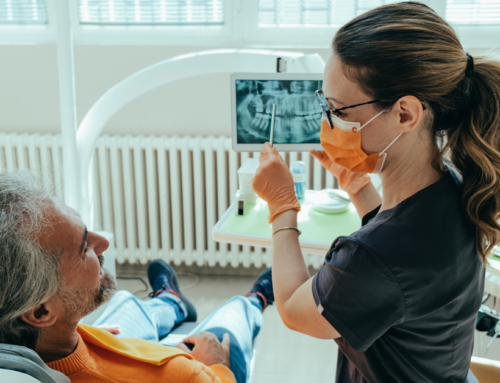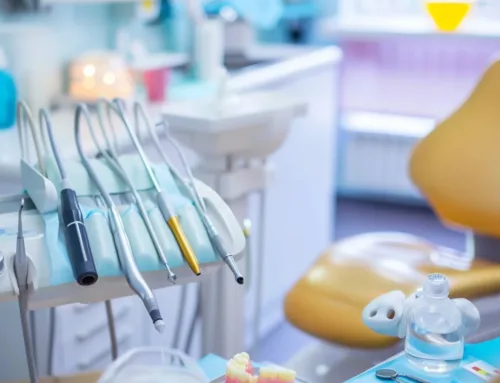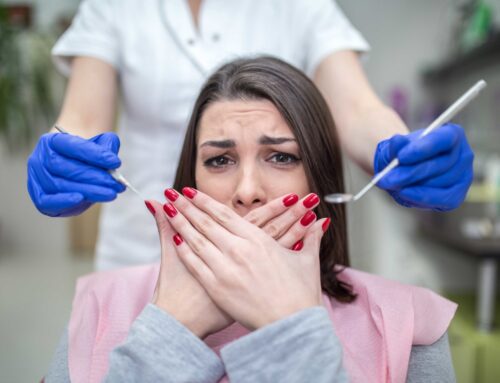How To Get Rid Of Plaque & Keep Tartar Under Control
If you’ve noticed that your teeth don’t feel as clean as they used to, then it may be time to revamp your at-home oral health care routine to boost its effectiveness in removing plaque and keeping tartar from forming. Here, we’ve compiled a helpful set of tips to get a cleaner, healthier mouth.
Have you ever been to the dentist for a checkup and they end up having to spend a little longer than usual on descaling your teeth? If so, then it’s likely that you may have a problem with plaque and tartar build-up. Plaque and tartar are issues that everyone has to deal with as part of their dental health care, but sometimes they can be more problematic and require extra attention in order to avoid more severe troubles from developing down the road.
Of course, the key to solving the problem lies in first understanding why it’s happening. Plaque and tartar can be effectively prevented and minimized, it just takes the right combination of at-home oral care habits and regular dentist visits to ensure that minor problems don’t get the opportunity to progress into major ones. First, let’s explain exactly what plaque and tartar are, and what the difference is between them.
What’s The Difference Between Plaque And Tartar?
Plaque and tartar are closely linked, but there are significant differences between them. Plaque is the soft, sticky accumulation that forms on the surfaces of our teeth, often collecting in larger deposits in between the teeth and around the gum line. Plaque is usually whitish or pale yellow in colour, and often has a foul odor to it that is associated with bad breath and halitosis.
Tartar is a hard, yellowish or brownish crust that sticks to the enamel of the teeth, often starting at or below the gum line and gradually extending upwards and outwards over the visible surfaces of the teeth. Tartar is porous with a rough, almost gritty-feeling, texture.
Where Does Plaque Come From?
Whenever our natural saliva combines with the foods we eat and drink, the resulting mixture creates an environment where bacteria can grow on our teeth, gums, and interior surfaces of the mouth. As this film builds up, it tends to collect in the crevices in between the teeth and in the gum pockets surrounding them. This accumulation of bacteria produces the sticky, soft substance we know as plaque.
What Causes Tartar To Form?
If this plaque is not removed from the teeth and gums, it can harden and calcify into a tough caked-on substance called dental calculus, or tartar. Generally, it takes about 24 to 72 hours for plaque to harden into tartar, but this process can be accelerated by certain factors. Dry mouth and tobacco use can cause tartar to harden faster, and other conditions such as crowded teeth or wearing braces can make it more difficult to remove plaque before it can harden.
What Happens If Plaque And Tartar Are Not Removed?
There are many reasons why it’s important to clean plaque off the teeth regularly and prevent tartar from building up, and some effects can develop into very serious health conditions if left untreated.
Tooth Discoloration & Staining
One of the first things to happen if plaque and tartar are not kept under control is the discoloration and yellowing of the teeth. In some instances, the discoloration may be gradual and affect the entire visible surface of the teeth, but in others the staining can occur much more rapidly or appear spotty and blotchy on the teeth. In any case, this is an easily preventable situation that proper cleaning and dental checkups can avoid.
Bad Breath & Halitosis
Another early sign of plaque and tartar build up is foul breath and consistent halitosis. If the plaque is cleaned off before it has a chance to harden into tartar, then the bad breath will often disappear or lessen significantly. However, if the plaque is allowed to harden into tartar, the odours created by the crusty bacteria residue will be far more persistent and difficult to deal with.
Cavities & Tooth Decay
If left untreated, the bacteria that thrives inside of plaque deposits and tartar produces an acidic residue that harms the enamel of our teeth and can cause cavities and tooth decay. The longer that plaque and tartar are in contact with the surfaces of the teeth, the more likely it is that cavities will develop and tooth decay will continue to advance through the mouth.
Gingivitis & Periodontal Disease
In addition to the problems above, plaque and tartar that is allowed to remain on teeth can eventually progress to harmful gum conditions known as gingivitis and periodontal disease. Gingivitis is early-onset gum disease and usually manifests in the form of swollen, tender gum tissue, bleeding when brushing or flossing, and receding gums.
If left untreated, gingivitis eventually progresses into periodontal disease, which is an advanced stage of gum disease associated with many serious health risks. Periodontal disease is a form of infection in the gums that results in loose or lost teeth, degradation in bone density, and causes pain and discomfort throughout the mouth of the patient. Advanced periodontal disease can be life-threatening, and must be treated clinically, often with a combination of extensive dental cleaning treatments, antibiotics and medications, and specialized surgical procedures.
How Can Plaque And Tartar Be Removed?
Of course, the objective for everyone should be to effectively deal with plaque and tartar using preventive oral health care techniques so that these harmful effects never arise. As the old adage goes, ‘an ounce of prevention is worth a pound of cure’.
Frequent Tooth Brushing Using Proper Technique
While we can’t stop all plaque from forming in our teeth throughout the day, we can make sure that it doesn’t get the chance to linger for too long and turn to tartar. Frequent tooth brushing, 2 to 3 times per day, using the proper technique for 2 minutes in duration, is the right approach. For even greater effectiveness, choose an electric or automatic toothbrush. The additional vibration and rotational motion offered by most electric toothbrushes does a better job of loosening plaque, thereby making it easier to brush away.
Flossing & Inter-Dental Cleaning
Along with frequent toothbrushing, you should always maintain a regular routine of flossing and cleaning the places in between teeth and down in the gums that toothbrush bristles just can’t reach. Flosses, interdental picks, and water flossers are all great ways to remove even more plaque from your teeth and keep tartar from forming.
Oral Rinses & Antibacterial Mouthwashes
The root cause of plaque and tartar is the accumulation of bacteria, so reducing the amount of bacteria present throughout the mouth will help to slow down and minimize the build-up of plaque. Oral rinses and antibacterial mouthwashes help to rinse away any leftover food particles or bacterial accumulation that was loosened by brushing and flossing, as well as kill lingering bacteria in other areas of the mouth. Regular use of anti-bacterial oral rinses has been shown to help maintain fresh breath, and works to keep plaque and tartar build-up at bay.
Regular Dental Clinic Checkups & Cleanings
Naturally, all of these at-home tricks to prevent plaque and tartar need to be accompanied by a regular schedule of dental health checkups and professional hygiene treatments by your dentist. While you can brush, floss, and rinse away plaque at home, there’s no getting rid of tartar once it forms on the teeth unless you get a professional descaling treatment. Descaling physically removes the hardened tartar from the teeth and below the gum line, leaving patients with clean, smooth, tartar-free teeth.
Sticking to the recommended interval of dentist visits will ensure that any plaque that does turn into tartar is thoroughly cleaned away. Plus, your dentist will be able to conduct a comprehensive exam of your entire mouth to check and see that everything stays healthy and strong, and identify any potential problems early so that they can be treated promptly.
Healthy Diet & Lifestyle
One other aspect to consider regarding your overall dental health is the impact that your diet and lifestyle can have on the state of your mouth. Consuming a high volume of sugary and starchy foods can accelerate the rate of bacteria growth in your mouth, in addition to carrying higher risks of developing tooth decay and other types of dental health problems. Tobacco use is another factor that can dramatically affect the state of your health, not just of your mouth, but of your entire body.
Cutting out unhealthy lifestyle habits like tobacco use and taking steps to eat a healthier, more balanced diet can have substantial benefits to your dental health, and also to your overall state of health and well-being. At Georgian Dental, we use a holistic dental approach with our patients, and work closely with them to enhance their dental care with helpful advice and guidance on how healthy living is directly linked to a healthy mouth.
Win The Fight Against Plaque And Prevent Tartar Build-Up Before It Starts
There’s never a bad time to rethink your oral health care routine and add in more effective techniques and better tools to help get rid of plaque and stop the accumulation of tartar on your teeth. You’ll find that by making some simple changes to your dental cleaning habits, you can dramatically reduce the presence of plaque on your teeth, keep your breath fresher, and minimize the build-up of tartar. We’re confident that these tips can help you impress your dentist and hygienist at your next appointment, and every appointment after that.
Appointment Request
If you’re interested in any of our procedures, and would like to meet with one of our dentists to discuss options, costs and get additional information, complete this short form and we’ll give you a call to arrange for a no-obligation appointment at our Barrie clinic.
